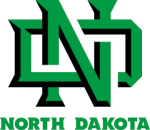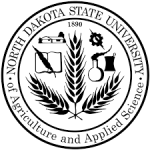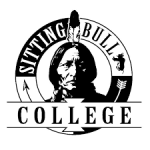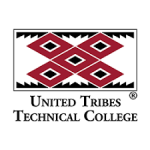
Criminal justice covers a range of exciting areas and subjects, combining law, local and Federal agency regulations, policy, and environmental enforcement.
This type of interdisciplinary education provides a broad range of career opportunities, financial stability, and lifelong professional development.
Years of study are usually required of those who are interested in law.
However, a criminal justice degree provides a strong, focused background in as little as two to four years.
It can be used as a launch pad for careers in public service, academic research, social policy, law, and even politics.
North Dakota criminal justice graduates often work in law firms, private security, corporate environments, international relations, policing, and correctional institutions.
There are a handful of North Dakotan criminal justice degree programs throughout the state offering two and four-year degrees.
Some are on campus, while others provide hybrid or 100% online programs better suited to an active lifestyle.
So, if you are meticulous and dedicated to the safety and care of your community, a career in one of the many pathways of criminal justice is an excellent option.
1 Minot State University

About the School
Minot State University is located in northwestern North Dakota and serves roughly 2,500 students.
Its main campus is located in Minot and offers over 100 undergraduate and graduate programs.
The university’s program is part of the Criminal Justice Department and offers a Bachelor of Science in Criminal Justice degree.
This program can be completed online or as a hybrid degree on the main campus.
It offers career-level education in law enforcement and legal policy.
It is also open to the Air Force through educational outreach.
Courses Offered
The criminal justice program exposes students to social, political, economic, and philosophical issues with the justice system.
The four-year, 122-credit-hour degree is part of the college’s Criminal Justice Department.
Basic English, writing, math, and natural science courses provide an academic foundation.
The degree focuses on basic tenets of law enforcement, skills, and procedures.
Areas of study include:
- Psychopathy of offenders
- Mass shootings
- Juvenile justice
- Police Management and Investigations
- Offenders and Corrections
- International and domestic terrorism
Graduates have the opportunity to be certified as a Peace Officer through a partnership with Lake Region State College.
Contact Information
- Address: 500 University Avenue W., Minot, ND 58707
- Phone: (800) 777-0750
- Website: Visit School Website
2 University of North Dakota

About the School
The University of North Dakota is a combination of North Georgia College & State University military college and Gainsville State College.
Located in Grand Forks, an estimated 18,000 students attend undergraduate and graduate studies.
The University of North Dakota (UND) offers criminal justice degrees at the Bachelor and Master of Science levels.
The university is ranked as one of the top 50 criminal justice programs in the nation.
The University of North Dakota program is one of the few hybrid law programs allowing students to combine undergraduate criminal justice studies and law school into a six-year Bachelor (B.S.) / Juris Doctorate (J.D.) program.
Courses Offered
The undergraduate 120-credit hour pathway focuses on rehabilitation and forensic science.
Students balance core courses with degree-focused instruction in criminal justice, policing, political science, and psychology.
Core competencies include:
- Criminal Law
- Law and Society
- Philosophy
- Policing Procedures
- International Policing
Tuition assistance, FAFSA, the GI Bill, Pell Grants, and corporate tuition discount programs are available.
Contact Information
- Address: 215 Centennial Drive, Stop 9003, Grand Forks, ND 58202
- Phone: (701) 777-2104
- Website: Visit School Website
3 North Dakota State University

About the School
Recognized as a premier research institution by the Carnegie Foundation, North Dakota State University (NDSU) offers nearly 12,000 students undergraduate and graduate degree programs at its Fargo, North Dakota campus.
A highly active campus, the university’s signature colors of green and gold are everywhere.
And community support for the “Bisons” is strong.
Courses Offered
North Dakota State University has an on-campus undergraduate criminal justice program.
For advanced studies, there is also a Master’s of Science and Doctoral program, all part of the Department of Criminal Justice.
A comprehensive interdisciplinary program, one of the final requirements for graduation is a supervised internship with area law enforcement or agencies.
North Dakota State University’s undergraduate curricula provide a broad focus on theory and policing.
While the advanced degree offers a more theoretical approach to criminology.
An academic foundation is required for all 120-credit-hour Bachelor’s degrees.
The syllabus lists courses in English, math, and natural sciences, such as philosophy.
North Dakota history and the U.S. Constitution are also included in the general studies.
Core legal competencies include:
- Criminology Theory
- Policing
- Tribal Law
- Legal Ethics
- Evidentiary Procedure
Tuition assistance and corporate tuition programs are available.
North Dakota State University also recognizes grants and the GI Bill.
Contact Information
- Address: 1340 Administration Ave, Fargo, ND 58102
- Phone: (701) 231-801
- Website: Visit School Website
4 Sitting Bull College

About the School
Sitting Bull College serves an estimated 250 students on the Standing Rock Reservation in the south-central part of the state.
The institution was founded in 1973 by a land grant from the Standing Rock Sioux tribe.
With its main campus in Fort Yates, North Dakota, Sitting Bull College campuses also serve tribal members in nearby McLaughlin and Mobridge, South Dakota.
Sitting Bull College offers both an Associate and Bachelor of Science programs in Criminal Justice.
Courses Offered
The criminal justice programs are designed as on-campus studies.
The college maintains a three-semester program.
The two-year degree involves 62 credit hours, while the four-year plan is 120 credit hours of fundamental education such as English writing, math, public speaking, North Dakota, and United States Constitutions.
Natural sciences, usually psychology and philosophy, are also required.
Core criminal justice competencies for both programs include,
- American Federal Law
- Tribal Justice and Sovereignty
- Enforcement
- Forensics
- Court procedures
A final year apprenticeship is required to graduate regardless of focus or degree level.
Over 79% of applicants qualify for some form of tuition assistance, corporate scholarships, and tribal federal grants.
The college also allows GI Bill assistance.
Contact Information
- Address: 9299 Hwy 24, Fort Yates, ND 58538
- Phone: (701) 854-8000
- Website: Visit School Website
5 University of Jamestown
About the School
The University of Jamestown is a private institution that offers a broad liberal arts curriculum for undergraduate and graduate education.
There are nearly 2,000 students – nicknamed ‘Jimmies’- enrolled on its Jamestown campus.
Courses Offered
The 120-credit hour, four-year Bachelor of Arts degree comprises 60 hours of general education, 40 credit hours in one’s major, and 20 hours of real-world experience.
Core criminology courses include:
- Community Policing
- Evidentiary Process
- Police Science
- Dynamics of Addiction
- Deviance and Social Control
All students must arrange an internship and complete a criminal justice thesis to graduate.
Nearly 100% of the university’s full-time students are offered some type of financial aid, scholarship, or grant.
Payment plans are available.
Contact Information
- Address: 6000 College Lane, Jamestown, ND 58405
- Phone: (701)252-3467
- Website: Visit School Website
6 United Tribes Technical College

About the School
The United Tribes Technical College is located in Bismarck, North Dakota.
This 500-student post-secondary education system provides vocational and foundational training for over 17 careers, from automotive technology to sustainable agriculture.
Courses Offered
The criminal justice pathways lead to either a Bachelor’s or an Associate of Science.
Broad in scope, these programs consist of foundational coursework as well as a law-centric curriculum.
The Associate of Science consists of approximately 61 credit hours, while the Bachelor of Science requires 121 course hours.
Depending on the pathway chosen, courses can be taken online or on campus.
They are taught by law enforcement experts with real-world experience.
Introductory paralegal courses include:
- Policing Procedures
- Tribal Law
- Military Investigative Services
- Criminal Investigations
- Homeland Security
Financial aid through tuition waivers, grants, and Federal and Tribal scholarships are available.
Students are also given employment opportunities for tuition offset.
Contact Information
- Address: 3315 University Drive, Bismarck, ND 58504
- Phone: (701) 255-3285
- Website: Visit School Website
7 University of Mary

About the School
This private Catholic Benedictine university is located near Bismarck. Internationally, the school is associated with programs in Rome and Peru.
In the United States, the University of Mary has educational outreach in several states.
Established by the Sisters of Annunciation Monastery in 1959, the University of Mary serves approximately 2,500 students with over 75 undergraduate and graduate programs.
Courses Offered
The criminal justice pathways, part of the Liffrig Family School of Education and Behavioral Sciences, require 124 credit hours for both the Bachelor of Arts and Bachelor of Science.
The B.S. in Criminal Justice is offered online or in live lectures.
In addition to four semesters of general education, there are four semesters of specialized coursework.
Criminal Justice core competencies include:
- Criminal Procedure
- Policing
- Abnormal Psychology
- Political Science
- Criminology
- Additive Disorders
Two approved internships are also required for graduation.
Financial aid, grants, scholarships, and payment plans are available.
Contact Information
- Address: 7500 University Drive, Bismarck, ND 58504
- Phone: (701) 355-8030
- Website: Visit School Website
8 Lake Region State College
About the School
Originally a public community college, Lake Region State College has its main campus in Devils Lake, North Dakota.
Over 1,000 students are enrolled in the college.
As a Division I and II, students and Royals fans have access to men’s and women’s volleyball, baseball, softball, basketball, and hockey.
Lake Region State College offers both online and on-campus education.
Vocational training and certifications are available.
Lake Region State College has also partnered with the Navy and Air Force to provide transitional education and professional certification.
Courses Offered
Lake Region State College confers an Associate in Applied Science in Law Enforcement.
This degree is a combination of 40 credit hours of basic education and legal theory, which can be completed on-campus or online.
Additionally, graduates must complete a 20-credit hour program – the Peace Officer Training Program (POTP).
All coursework is reviewed and taught by legal experts with real-world experience.
Law enforcement core courses include:
- Introduction to Policing in America
- Criminal Law
- Juvenile Delinquency
- Criminology
Financial assistance such as scholarships, grants, and payment plans are available to help all students.
Military education benefits are accepted for all programs.
Contact Information
- Address: 1801 College Drive N., Devils Lake, ND 58301
- Phone: (701) 662-1600
- Website: Visit School Website
Schools Summary Table
Criminal Justice Salary Information
The demand for criminal justice specialists in North Dakota remains high – 6th in the nation for law enforcement careers.
Conservative estimates forecast a gain of 14% for trained positions through 2029.
This is substantially higher than the national average growth of 4%.
Those with a background in criminal justice have ample opportunity for employment throughout the state, from law enforcement to forensic technicians or tribal advocacy.
For those remaining in the Peace Garden state, criminal justice graduate salaries range from $59,150 to $90,000 annually.
If highly trained with a specialized focus such as Tribal Law or enforcement, individuals can expect to earn over $100,000 annually.
| Item | Percent |
|---|---|
$54K |
|
$73K |
|
$80K |
Average Salary in North Dakota
| City Name | Salary |
|---|---|
| Fargo | $71,527 |
| Bismarck | $74,424 |
| Grand Forks | $68,470 |
| Minot | $73,280 |
| Mandan | $74,424 |
| Dickinson | $73,280 |
| Jamestown | $71,832 |
| West Fargo | $71,527 |
| Williston | $73,280 |
| Wahpeton | $70,383 |
Regional Salary
| Region | Employed | Avg. Annual Salary | Avg. Hourly Pay | Top 10% Annual Salary | Bottom 10% Annual Salary |
|---|---|---|---|---|---|
| Bismarck, ND | 100 | $71,500 | $34.38 | $123,120 | $44,160 |
| Fargo, ND-MN | 80 | $87,190 | $41.92 | $135,430 | $54,180 |
| Grand Forks, ND-MN | 60 | $98,040 | $47.13 | $184,890 | $52,450 |
* Employment conditions in your area may vary.
Criminal Justice Schools by State
- Alabama
- Alaska
- Arizona
- Arkansas
- California
- Colorado
- Connecticut
- Delaware
- Florida
- Georgia
- Hawaii
- Idaho
- Illinois
- Indiana
- Iowa
- Kansas
- Kentucky
- Louisiana
- Maine
- Maryland
- Massachusetts
- Michigan
- Minnesota
- Mississippi
- Missouri
- Montana
- Nebraska
- Nevada
- New Hampshire
- New Jersey
- New Mexico
- New York
- North Carolina
- North Dakota
- Ohio
- Oklahoma
- Oregon
- Pennsylvania
- Rhode Island
- South Carolina
- South Dakota
- Tennessee
- Texas
- Utah
- Vermont
- Virginia
- Washington
- West Virginia
- Wisconsin
- Wyoming


Leave a Reply